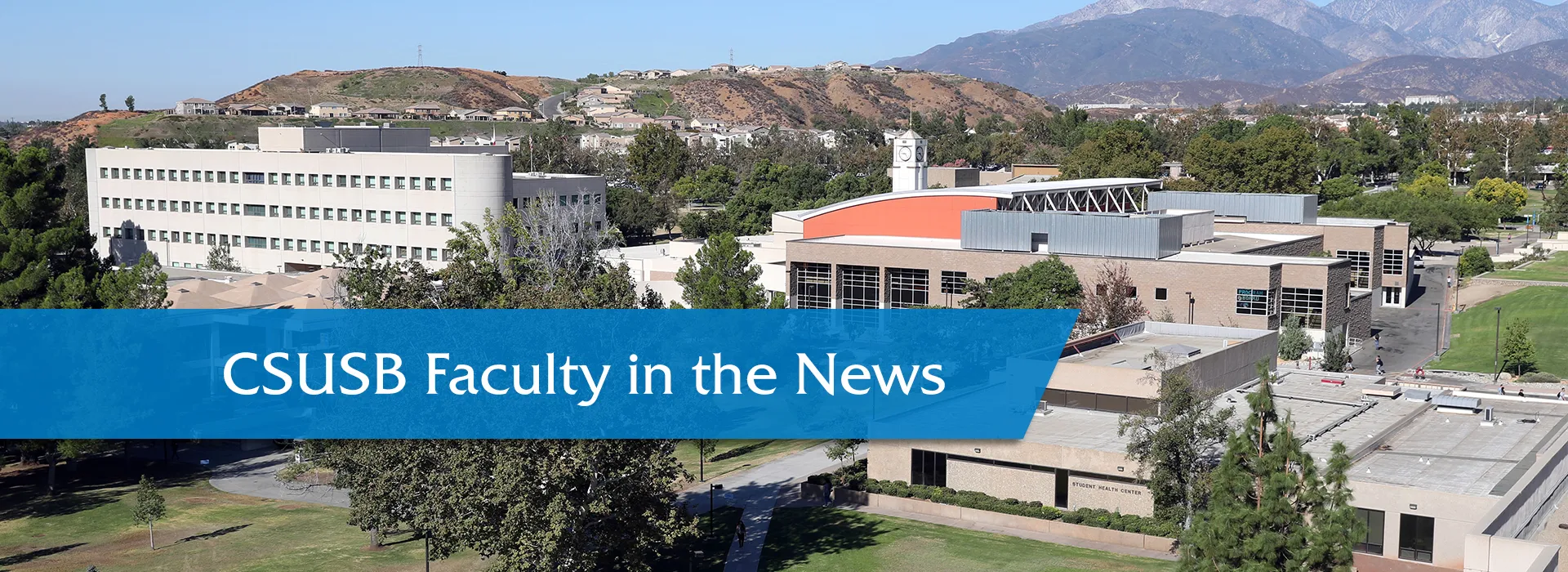NOTE: Faculty, if you are interviewed and quoted by news media, or if your work has been cited, and you have an online link to the article or video, please let us know. Contact us at news@csusb.edu
Punishment or not, school officials can’t ignore expressions of racism and anti-Semitism, CSUSB professor says
USA Today
Oct. 3, 2019
As acts of hate become more prevalent across the country, school officials are wrestling with how to respond. Sometimes they sanction participants. Sometimes they don't. If they do discipline the students, rarely is it public. One problem, school officials around the country say, is that many of the incidents showing up on social media took place off-campus.
'Expressions of antisemitism and racism have a chilling and intimidating effect on a school environment even more than a workplace environment,' said Brian Levin, director of the Center for the Study of Hate and Extremism at California State University, San Bernardino. Ignoring such acts 'would have the effect of limiting school participation where (students of color or Jewish students) are perceived not only as not wanted, but also at risk.'
Read the complete article at “Punish students for Nazi salutes? It's not always easy — or a good idea, experts say.”
CSUSB professor emeritus one of the keynote speakers at a sustainability conference in India
The Hitavada (India)
Oct. 3, 2019
The news site reported that Breena E. Coates, CSUSB professor emerita of global strategy and sustainability, was one of the keynote speakers at the 6th International Conference on Sustainability and Management Strategy, held Sept. 27-28 in India at the Institute of Management Technology (IMT), Nagpur.
CSUSB was also listed as one of the conference’s academic and technical partners.
Read the complete article at '6th International Conference on ICSMS at IMT concludes.'
CSUSB professor asked for analysis of latest news involving multinational agreement with Iran on its nuclear program
Press TV
Oct. 3, 2019
David Yaghoubian, CSUSB professor of history, was interviewed for a segment on Ayatollah Seyyed Ali Khamenei, Iran’s supreme leader, who said his country is determined to reduce more of its commitments under a 2015 multinational agreement that limited Iran’s nuclear program.
More than a year ago, the Trump Administration pulled the United States out of the agreement, known as the Joint Comprehensive Plan of Action , or JCPOA, saying it wanted to renegotiate for a better agreement, and imposed economic sanctions on Iran to get to the negotiation table. France, Germany and the United Kingdom have tried to keep the agreement intact; the other signatories were Russia and China. Iran had been pressing the remaining signatories to alleviate the impacts of the U.S. sanctions.
Yaghoubian, who appears at about 3 minutes and 23 seconds into the video, said, “The supreme leader (Khamenei), as well as the entirety of the Iran political establishment, has become jade with the repeated European support for the JCPOA, but no real action taken to share the burdens of the agreement.
“And to enjoy the benefits of the nuclear agreement, all parties who are signatories must also share in the burdens,” he said. “And so what I see the Europeans doing repeatedly is attempting to very spinelessly sit on the fence and essentially try to wait out the clock, either to see a return by the United States to the JCPOA or to engage in some sort of new round of discussions, or put forward new plans as such as (French President Emmanuel) Marcron’s four-point plan to essentially stave off a potential war in the short term and then potentially lead to some sort of diplomatic solution.”
Watch the complete video segment online at “Iran’s leader says reducing JCPOA commitments must continue until desired objective achieved.”
These news clips and others may be found at “In the Headlines” at inside.csusb.edu.
